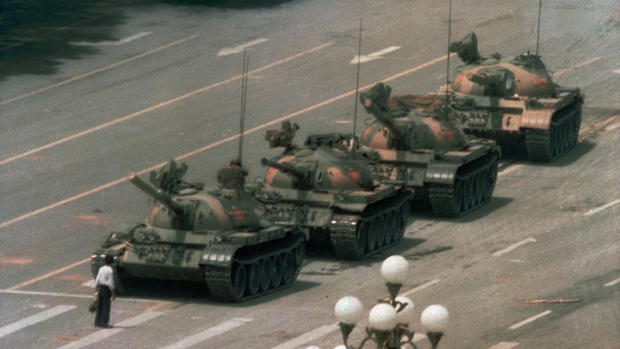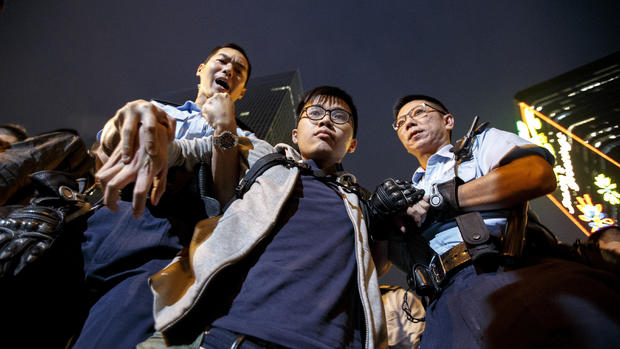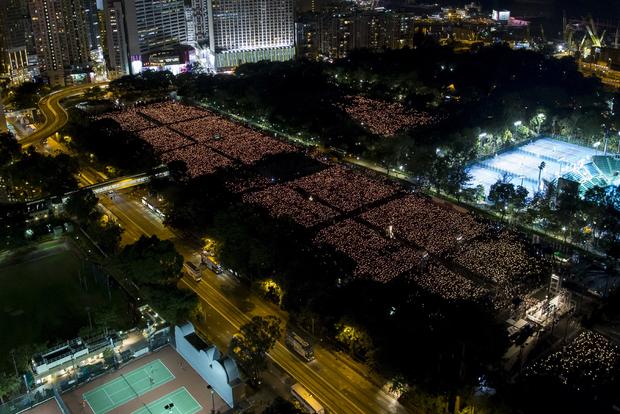Echoes of Tiananmen louder than ever in Hong Kong
HONG KONG -- Hong Kongers planned a candlelight vigil Thursday night to mark the suppression of the 1989 student-led Tiananmen Square protests, an annual event that takes on greater meaning for the city's young after last autumn's pro-democracy demonstrations sharpened their sense of unease with Beijing.
For the first time in the commemoration's quarter-century history, some student groups won't be taking part and will instead hold their own memorials, in a sign of an emerging rift between young and old over Hong Kong identity that took root during the Occupy Central protests.
The vigil is the only large-scale public commemoration of the victims on Chinese soil. Hundreds and possibly thousands of unarmed protesters and onlookers were killed when tanks and soldiers entered central Beijing on June 3-4, 1989, to put down the student-led protests.
"June 4 and Occupy Central are very similar," said Otto Ng, a 19-year-old student who planned to attend the vigil for the first time. Ng said he hadn't known much about the events in Tiananmen Square but tried to learn more after last year's protests erupted.
In both cases, "we are all students, and we are pushing for democracy and freedom," he said, adding he was upset that dozens of tear gas canisters had been fired by Hong Kong police in a failed bid to disperse tens of thousands of protesters on the streets.
Political tensions now threaten to reignite over the government's plan to submit for lawmaker approval later this month its electoral reform package, including Beijing's requirement to screen candidates in future elections for top leader. Local news reports say more than 7,000 police will be deployed to deal with protests in the run-up to the vote.
In years past, Hong Kongers have gathered in Victoria Park, holding candles aloft and calling for the Chinese government to overturn its verdict that the Tiananmen Square protests were a counterrevolutionary riot. An estimated 180,000 attended last year.
Organizers plan this year to show videos about Occupy Central and speakers will talk about mainland activists detained for voicing support. Hong Kong became a part of China in 1997 after a century and a half as a British colony but maintains freedom of speech and other civil liberties not seen on the mainland.
Three university student groups, however, have opted out of the vigil because of a disagreement over the need to build a democratic China, a guiding principle of the vigil's organizer, the Hong Kong Alliance in Support of Patriotic Democratic Movements in China. The group was originally established to support the students protesting in Beijing.
The Hong Kong Federation of Students, a coalition of the city's universities that was one of the driving forces behind the Occupy protests, has also opted not to take part.
Elsewhere, radical "localist" group Civic Passion, known for its confrontational stance, plans to burn a Chinese Communist flag at its own rally.
Billy Fung, president of Hong Kong University's student union, which is holding its own event on campus, said the group wants to focus on establishing genuine democracy in Hong Kong first.
"If we just go for one night every year to attend the vigil and chant about building a democratic China, then what you're doing is just verbally supporting a cause, and you won't help build a democratic China," said Fung.
The Hong Kong protests reinforced the sense of a separate Hong Kong identity for young people, who he said now "will question if it is their responsibility to help establish the development of Chinese democracy."
However, lawmaker Lee Cheuk-yan, who is secretary of the Hong Kong Alliance, said it's impossible to keep it a separate issue.
"We must change China before China changes us," he said.


